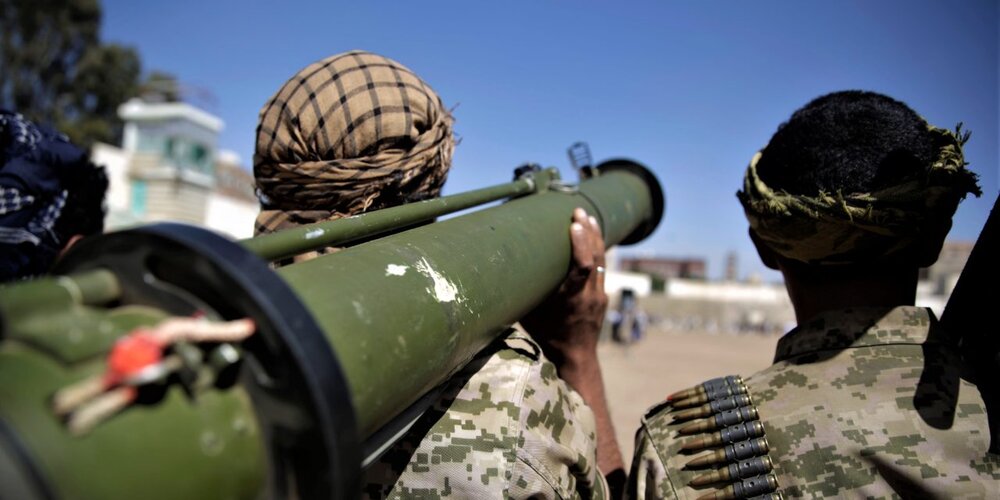In recent weeks, the exchange of fire between Ansarullah forces and the invading Saudi coalition has intensified. On the other hand, on Monday last week, the Yemeni Ansarullah affiliated army announced a large-scale military operation deep in Saudi Arabia, targeting military bases and important centers in Abha, Jizan and Najran regions with ballistic missiles and navigation aircraft. Last Thursday, fighters from the Saudi-led Arab aggression coalition targeted the northeastern Yemeni province of Ma’rib 10 times. In addition to Ma’rib province, coalition fighters targeted the Nata area north of al-Bayda province in central Yemen seven times and the town of Harz in northwestern Hajjah province twice. The coalition airstrikes in Ma’rib, al-Bayda and al-Hijjah provinces come a day after the Ansar al-Islam movement announced that 31 civilians, including several women and children, were killed and wounded during airstrikes by the Arab coalition in al-Jawf province on the border with Saudi Arabia.
In the current context, Yemen’s Ansar al-Islam is pursuing a deterrent stance towards the Saudi coalition; In other words, since the beginning of the Saudi-led invasion of Yemen five years ago, Ansar has shifted from a defensive to an offensive position and from an offensive to a deterrent position. Unfortunately, the Saudis have not yet agreed to this offer and are not willing to accept these minimum conditions and lift the sanctions. On the other hand, the supporters of Saudi Arabia, and specifically the United States and Britain, are not serious about ending this war. The strategy of Ansarullah, or the government of Sanaa, is to continue the deterrent movement deep inside Saudi territory as long as the Saudis and their allies do not stop the aggression. In this regard, we saw that last Wednesday, the head of the Ansarullah Army Intelligence Organization officially announced that they would no longer defend themselves on the borders of Yemen, but would extend the defense and deterrence phase to the depths of the enemy, namely Saudi Arabia, UAE and Israel. Since then, the attacks have been carried out in very sensitive areas inside Saudi Arabia and may spread to the UAE or Israel in the coming weeks and days.
Therefore, it seems that Ansarullah’s confrontation with the aggressors is entering a new phase, which is very sensitive. Because the evidence shows that the Israelis have entered the Yemeni crisis by inciting the UAE and are trying to help the Saudi-UAE coalition in the fight against the resistance of Yemen and Ansarullah. Therefore, from the very beginning, Ansarullah has seriously threatened the three sides of the conflict, namely Israel, Saudi Arabia and the UAE, that if they want to expand their military aggression, they will drag the war to their lands through their missile power. An issue that will undoubtedly have unforeseen consequences for the three sides of this triangle; Therefore, if the Saudis do not agree to a ceasefire and do not lift the sanctions, this confrontation between the two sides will be pursued in a newer offensive phase, and may even find special conditions.
Finally, Yemen is now facing major developments that will extend beyond the land borders of Yemen and neighboring countries. In fact, as mentioned, with the threats posed by the Yemeni army and popular committees, it seems that in the coming days, there will be changes in the depths of Saudi Arabia and the UAE, and it will not be far from expected that Ansarullah may consider hitting targets in the Zionist regime.
Given these circumstances, it can almost be said that there is currently no prospect of ceasefire and peace in Yemen; Of course, Ansarullah repeatedly called for a ceasefire and the lifting of sanctions, and participated in talks in Kuwait, Jordan, Muscat and Sweden, but the Saudis were not serious in any of these talks.
Finally, the operation to liberate the strategic city of Ma’rib is very important. Ma’rib is a gas-rich province and Ansarullah does not want this province to enter the military phase due to its gravity and the large presence of tribes in it. Therefore, Ansarullah is negotiating with the tribes to resolve the problems peacefully; but it seems that if these peaceful solutions do not come to fruition, it is not far-fetched that the province of Ma’rib will be handed over to the Ansarullah government. If this happens, practically all the provinces of the northern part of Yemen will be in the hands of the Sanaa National Salvation Government.
Regarding the regional and global fronts against the war in Yemen and the Saudi coalition, it should be noted that the Islamic Republic of Iran has always been a moral supporter of the Yemeni people and defends the people; But the other side, including the United States, Britain and some other Arab and Western countries, are defending an aggressor, Saudi Arabia.










0 Comments